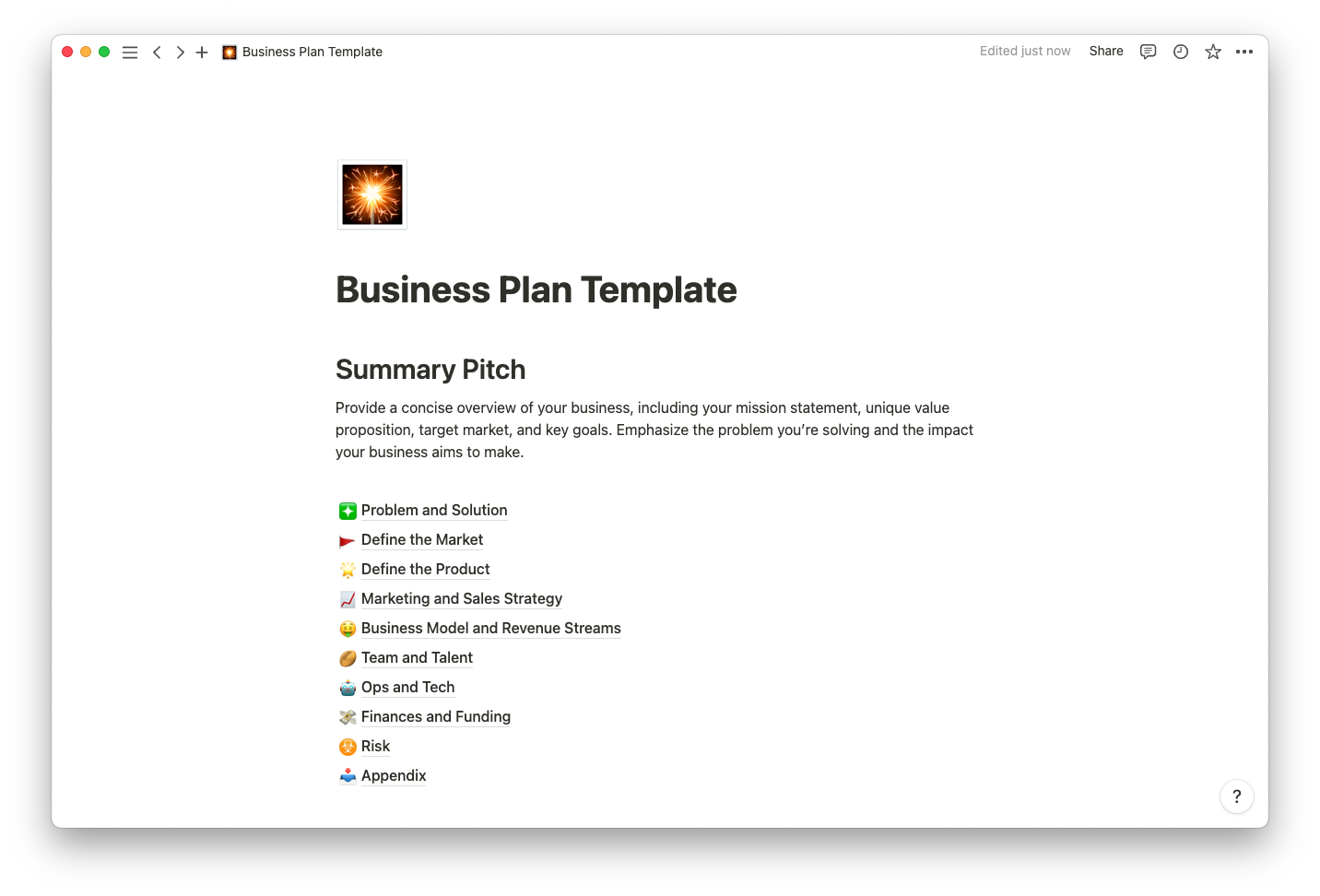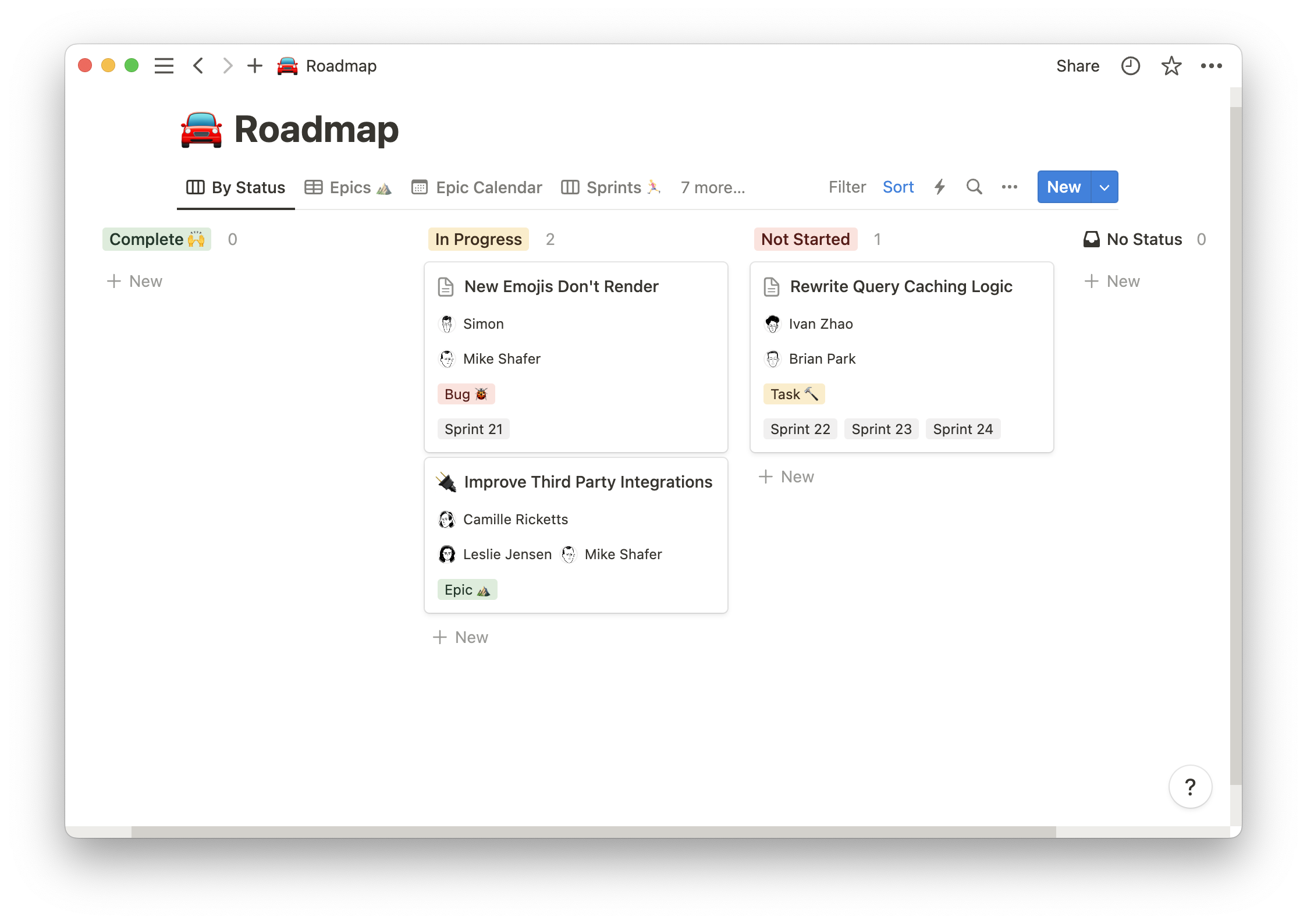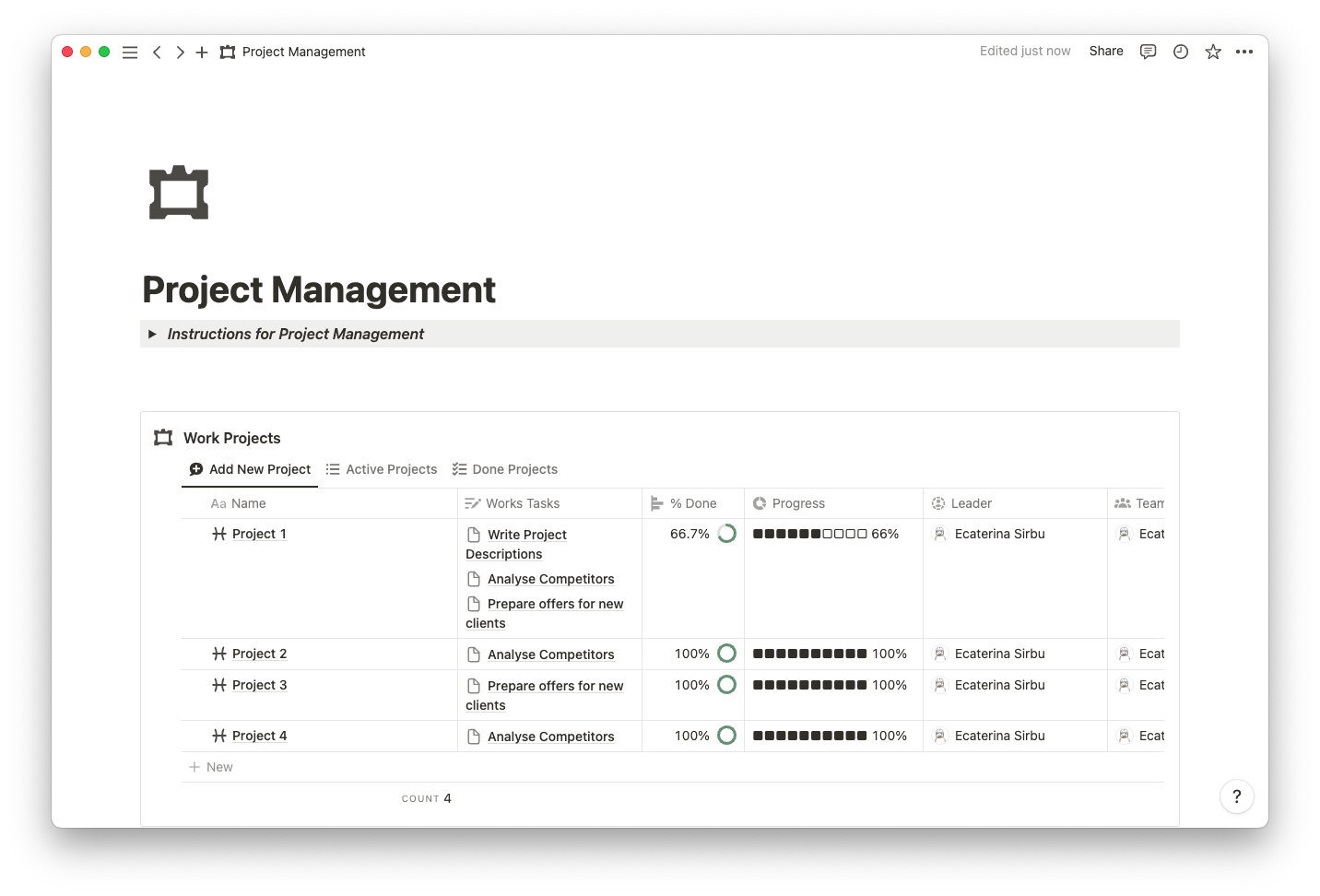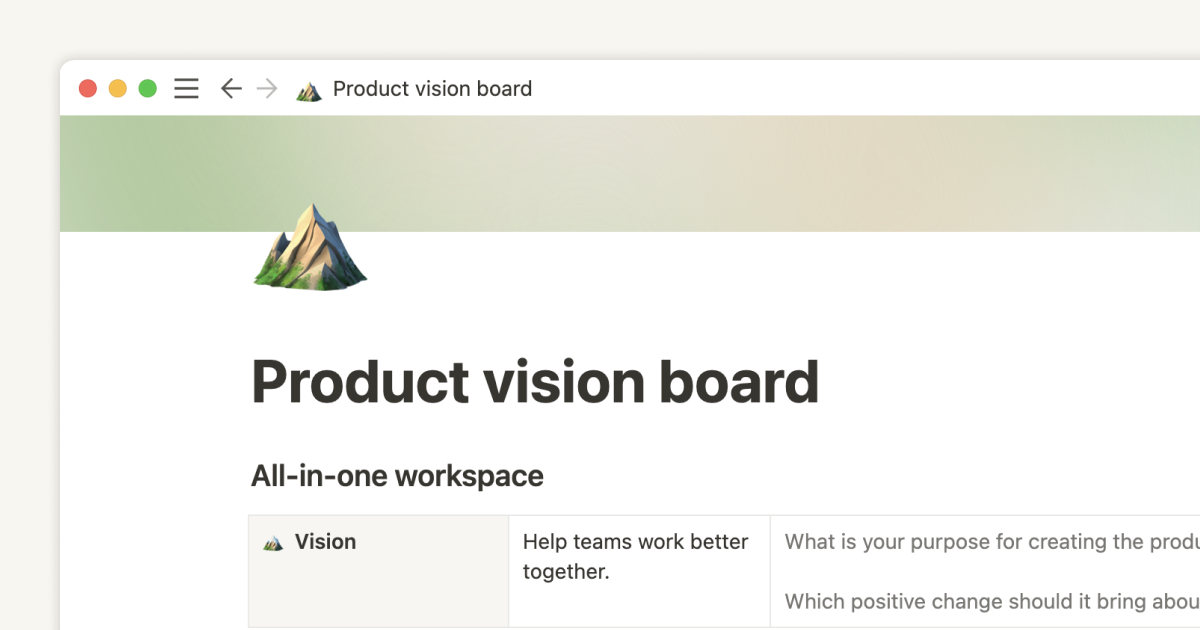Think of a business you admire.
Maybe it’s a high-power startup in your industry or an underdog smallholder that made it to the top. Regardless of what that organization achieved, it had to start somewhere. And a business plan likely played a key role in its success.
Running a business takes foresight and intention, and if you’re trying to start one, you need a document that hosts that information in one place — and convinces stakeholders that it’s worth a shot. That's where business plan templates come in.
What’s a business plan, and why is it important?
A business plan is a strategic document that outlines a company's goals and the steps to achieve them. It describes the approach you'll need to enter, and succeed in, a target market, with an executive summary, mission statement, and the roles of key team members.
Your business plan is more than a piece of paper — it's an effective tool that helps steer your company from inception to growth and beyond.
Business plans provide multiple benefits, including:
Resource allocation — a well-structured business plan provides a bird's eye perspective on the resources at your disposal, allowing you to allocate according to your budget, staff, and timelines. It could include a cash flow statement and a financial plan for comprehensive resource management.
Risk mitigation — before pursuing your goals, you need to understand the challenges that might prevent you from achieving them, like financial restraints or scope creep. Prepare for the worst by identifying potential risks and creating contingency plans.
Collaboration — an attractive business plan is like a pitch deck for potential investors and stakeholders. It shows your dedication, efficiency, and foresight, helping you win over prospective partners. A comprehensive plan also keeps you and your team members on the same page.
Progress-tracking — including key performance indicators (KPIs) and objectives and key results (OKRs) gives you a framework for measuring progress over time and modifying strategies when necessary.
Decision-making — referring to your business plan can help you decide what steps to take when new opportunities and threats arise, whether you're working on a marketing plan or conducting a SWOT analysis.
Long-term success — not only do business plans support one-off projects and product launches, but they also help set long-term goals for consistent and sustainable growth amid fluctuating markets.
The 10 best business plan templates to accomplish your goals
Every company, big or small, needs a roadmap to move forward. These 10 free business plan templates can structure your productivity and become key players in your team’s workflow.
1. Business Plan - AI Prompts

This sample template uses ChatGPT prompts to help you draft strategies. It includes seven integral business plan components: general, market, technology, customer focus, financial, legal and regulatory, and investors and future.
With AI, you can generate relevant and effective reports on each criterion, including market research, competitive analysis, and financial projections, to develop structured strategies that actually scale your business.
2. 3-year Business Plan

This three-year template offers a great foundation for long-term goals. It splits each year into four quarters and includes multiple components to measure progress, including KPIs, major product and tech releases, and PR initiatives.
The entire table is customizable. You can add or remove cells according to your priorities and goals. It’s also easy to automate — just click the lightning icon to update values as you enter them.
3. Business model canvas

This business model template provides a box-like, bird's-eye view of your company and its goals. It includes nine segments — value propositions, customer segments, channels, customer relationships, revenue streams, key activities, key resources, key partnerships, and cost structure — for a truly comprehensive sample business plan.
You can categorize segments, briefly describe each, and add emojis to differentiate them visually. If you don't like the canvas layout, you can toggle the view and sort through each segment by type and color code.
4. Business Plan Template

This one-page business plan template offers a barebones layout for those who like to keep it simple. It starts with a summary pitch, where you add a mission statement, unique value proposition, and primary objectives. Then you can fill out other pages on your market, product, and sales strategy for a little more detail. An appendix helps you organize it all.
5. Notion’s Annual Planning Exercise

Your original plan might not cut it as the market changes. This all-in-one Notion template helps you adjust your strategies every year — from goal-setting to execution.
You can use this planning calendar to establish milestones, assign project managers, and set timelines for each project you’re working on. It’s a detailed doc, so to avoid overwhelming staff, specify which projects and tasks belong to which individuals and teams. The planning calendar is also a great way to organize everything in a clear timeline.
6. Notion’s company goals

If you’re looking for a future-forward template, this one hosts all of your organizational goals into an easy-to-track table you can share and use for collaboration. This business plan outlines your key objectives and sorts them by theme, department, and priority. If you want an in-depth view of a specific cell, simply hover over it and expand. That way you don’t have to look at every detail all the time.
7. OKR and Project Management

This OKR and Project Management template is ideal for smaller companies and startups seeking a user-friendly business plan document. It offers a simple dashboard with seven key components: objectives, key results, projects, tasks, employees, department, and team.
Clicking on any criterion opens a customizable tabular view to monitor project progress. The Projects table offers a percentage-style status bar, while Tasks/To-Dos includes an in-depth layout of each project with checkboxes and timelines.
8. Long-Term Project Planning and Execution

Business plans revolve around long-term planning, sustainable growth, and consistent results. In only one page, this no-fuss template focuses on five key metrics to achieve those goals: project introduction, project objective, monthly milestone, task breakdown, and project meeting. Expand each component to specify project-related details in depth, such as the core members and attachments.
9. Company Databases

When your business grows, you’ll need a place to track all information at a glance. Company Databases is an easy-to-view template that keeps everything together for you. It includes four essential databases: projects, team docs, team meetings, and customer relationship management.
The layout is entirely customizable, so you can create new databases and connect them by relating data entries and values. You could link a project with its own documents and team meetings and bridge the gap between knowledge bases, giving everyone easy access.
10. Roadmap Planning

This last template includes a Whimsical integration, bringing interactive boards into Notion to help you create diagrams, charts, and wireframes. It has two parts: a roadmap outline and a section for projects. The outline provides a color-coded timeline spread across four quarters, where you and your team can monitor projects, set timelines, and assign teams. And under the Projects tab, you can preview an entire roadmap in tabular form.
Scale your business with Notion
Whether you’re an established enterprise or a budding startup, business plan templates help you create organized workflows that provide clarity and increase productivity. With Notion, you can access even more project plans to propel your business to the next level. Any team can leverage a wide range of templates, from project workflows to product vision boards — keeping everything in one convenient place.





